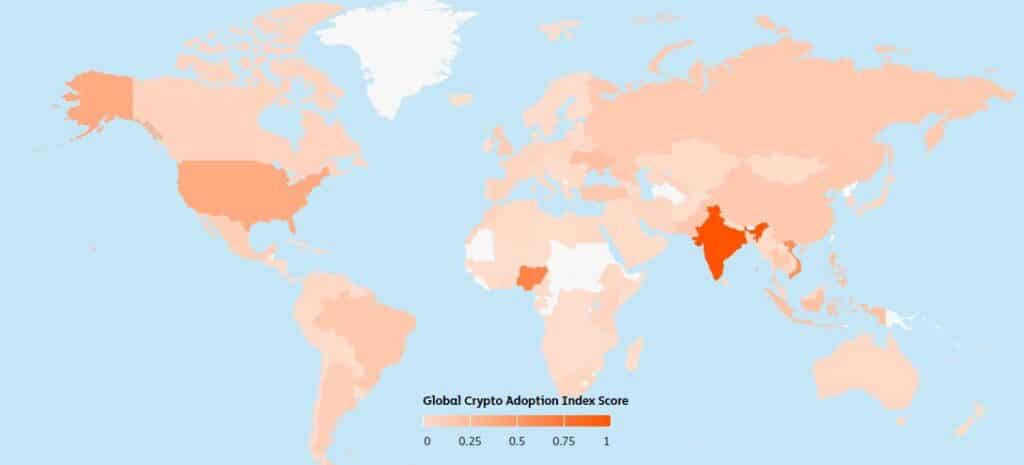The growth of neo-banking and its role in banking the underbanked

Developing countries are the fastest growing regions in crypto adoption and the growing presence of neo-banks plays a major role in this growth. Could these innovative platforms be the solution to financial inequality and the underbanking of over a billion people?
As Satoshi once said in his now-defunct social media posts, “Bitcoin will be convenient for people who don't have credit cards or don't want to use their cards.” Developing countries in Africa, Latin America, or Southeast Asia may have more real resonance for this statement than others. The rise of neo-banking in developing countries over the past half decade has revolutionized how people interact with their economies and radically changed their financial systems.
Crucially, billions of unbanked and underbanked will eventually be integrated into the global financial system despite the lack of efficient banking structures in their respective countries.
This article outlines how cryptocurrency is benefiting the unbanked (and underbanked) and the role neo-banks play in providing financial services to countries with little hope of a stable banking infrastructure. Due to rapid adoption in sub-Saharan Africa, Latin America, and Southeast Asia regions, it further looks at the role that developing countries play in boosting the crypto ecosystem and various technological developments in the industry.
Financial imbalances in imperfect economies
According to the World Bank report, More than 1.2 billion people worldwide are unbanked or underbanked.. Developing countries continue to be countries where more than 50% of the population does not have a strong banking infrastructure or access to basic financial services such as credit facilities, savings accounts etc.
The advent of blockchain technology and cryptocurrencies has revolutionized the global financial system, providing citizens of these countries with previously unavailable financial systems. The emergence of this decentralized industry is becoming a force in the global financial landscape, traditional currency, transactions and financial systems.
Powered by blockchain technology and cryptographic principles, cryptocurrencies are opening up the financial world to developing countries, allowing previously unbanked and underbanked citizens to participate in the financial ecosystem. These assets open up new ways of trading and storing fast and low-cost digital currency that can be used anywhere.
The growth of neo-banks and decentralized finance (DeFi)
In the year The global financial crisis of 2008 brought about many innovations in the industry, especially the development of neo-banking. Neo-banks refer to financial technology companies that are redefining how banking services are delivered to consumers, from seamless digital experiences to lower transaction fees and accessibility via smartphones.
The neo-banking system that has emerged in Kenya has taken off and launched a mobile financial service called M-Pesa that allows anyone with a SIM card and a phone to send and receive money. Over the years, such innovations have become major players in the financial sector as they revolutionize traditional banking and financial services.
Recently, decentralized finance (DeFi) applications have come to the fore with crypto-savvy consumers, offering personalized user-centric services by offering digital and decentralized options. However, crypto exchange apps have rapidly emerged, giving anyone around the world access to cryptocurrencies on their smartphones. These applications ensure advanced security measures and seamless integration of fintech solutions with traditional financial services.
In this way, developed countries have been able to integrate into the global financial systems, demonstrating the transformative power of crypto to the modern consumer.
Crypto exchanges can test the status quo.
As mentioned, crypto exchanges are moving into broader markets, moving from simple on-ramp and out-of-the-box business models to neo-banks and challenging the traditional financial system – global, low-cost and highly accessible to the unbanked. Crypto adoption is becoming more popular for 1.2 billion and financial services and products are more sophisticated and accessible. Could this pose a threat to traditional banking systems?
The jury is still out on that, but the solutions offered by these “decentralized neo-banks” are having a huge impact on the economies of developing countries – financial inclusion, low-cost remittances and fast and secure transactions have fueled the growth of crypto. In these economies.
Box windThe digital asset exchange platform, which will be operational at the end of the year, will bring these solutions to 1.2 billion such services. From trading to lending, savings, trading and channeling cryptocurrencies to developing economies and regions. The exchange is designed to provide advanced functionality for new and experienced investors and offers over 300+ digital asset trading and derivatives, ramp and off-ramp solutions, sales services, borrowing/lending and more.
The platform features the brainchild of PIP World, which aims to empower users with edutech programs, gamific commerce and AI-powered gaming. PIP traderOne of the games and educational platforms allows users to collaborate, compete in business games and earn rewards in AI-based games.
look forward
Chainalysis' 2023 Crypto Report It showed that more than 40% of the world's cryptocurrency users live in low-middle income countries (LMICs), a number that is growing every year. This impressive growth has a significant impact on CEXs and the wide range of services they offer. Regulated crypto exchanges can be a key driver of continued adoption rates by facilitating neo-banking services for the underbanked.
Crypto adoption in developing economies presents a unique opportunity to empower individuals, enhance skills and financial literacy, and provide solutions to financial inequality. But for the industry to really grow, several things need to be put in place, including creating secure platforms, complying with regulatory regulations, protecting users' money, easily accessible platforms, and educating the masses about the technology.












